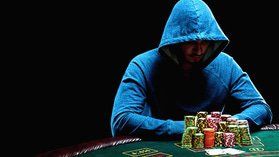
Problem gambling is a serious issue that affects individuals and their families worldwide. It is essential to recognize the signs of problem gambling and understand the various solutions available to combat this addiction. This article aims to shed light on problem gambling, its signs, and ways to address it effectively.
Defining Problem Gambling
Problem gambling refers to the behavior of individuals who are unable to control their gambling habits, leading to negative consequences in their personal and professional lives. It is more than just occasional gambling and can manifest as an addiction with severe financial, emotional, and psychological repercussions.
Signs of Problem Gambling
1. Increased Spending
Problem gamblers often exhibit a significant increase in their gambling expenditures. They may frequently seek extra money to fund their addiction or start borrowing from friends and family members to support their gambling activities.
2. Preoccupation with Gambling
Individuals with a gambling problem often find themselves consumed by thoughts of gambling. They may spend excessive time planning their next gambling session, researching strategies, or analyzing historical data associated with their preferred form of gambling.
3. Failed Attempts to Stop or Control Gambling
A clear sign of problem gambling is the repeated inability to quit or moderate gambling habits. Problem gamblers often make unsuccessful attempts to cut back on their gambling or stop altogether, suggesting a loss of control over their behavior.
4. Neglecting Responsibilities
Problem gamblers may neglect their responsibilities at work, school, or home in favor of gambling activities. They may miss important deadlines, skip classes, or fail to fulfill their obligations towards their families or loved ones due to the preoccupation with gambling.
5. Emotional Distress
Emotional distress is commonly associated with problem gambling. Gamblers may experience feelings of guilt, shame, anxiety, or irritability due to their gambling behavior. These emotions may be further amplified by the financial losses incurred through their addiction.
Solutions for Problem Gambling
1. Self-Help Techniques
Self-help techniques involve personal efforts to overcome problem gambling. This includes setting limits on gambling activities, seeking alternative recreational activities, and developing a support system of friends and family members who understand the problem.
2. Therapy and Counseling
Therapy and counseling can be highly effective in treating problem gambling. Cognitive-behavioral therapy (CBT) is commonly used to challenge and change negative thought patterns associated with gambling. Family therapy can also address the impact of problem gambling on relationships.
3. Support Groups
Support groups, such as Gamblers Anonymous, provide a platform for individuals struggling with problem gambling to share their experiences and receive emotional support. These groups can provide a sense of community, understanding, and guidance throughout the recovery process.
4. Financial Management
Problem gamblers often face significant financial difficulties as a consequence of their addiction. Seeking assistance from financial counselors or debt management programs can help individuals regain control over their finances and work towards a more stable financial future.
5. Treatment Centers
In severe cases, where problem gambling has had a profound impact on an individual’s life, treatment centers specializing in gambling addiction can be a beneficial option. These centers provide intensive support, counseling, and rehabilitation programs tailored specifically to address problem gambling.
Conclusion
Recognizing problem gambling is crucial for early intervention and effective treatment. By understanding the signs of problem gambling and being aware of the various solutions available, individuals and their loved ones can take the necessary steps towards overcoming this addiction and reclaiming control of their lives.